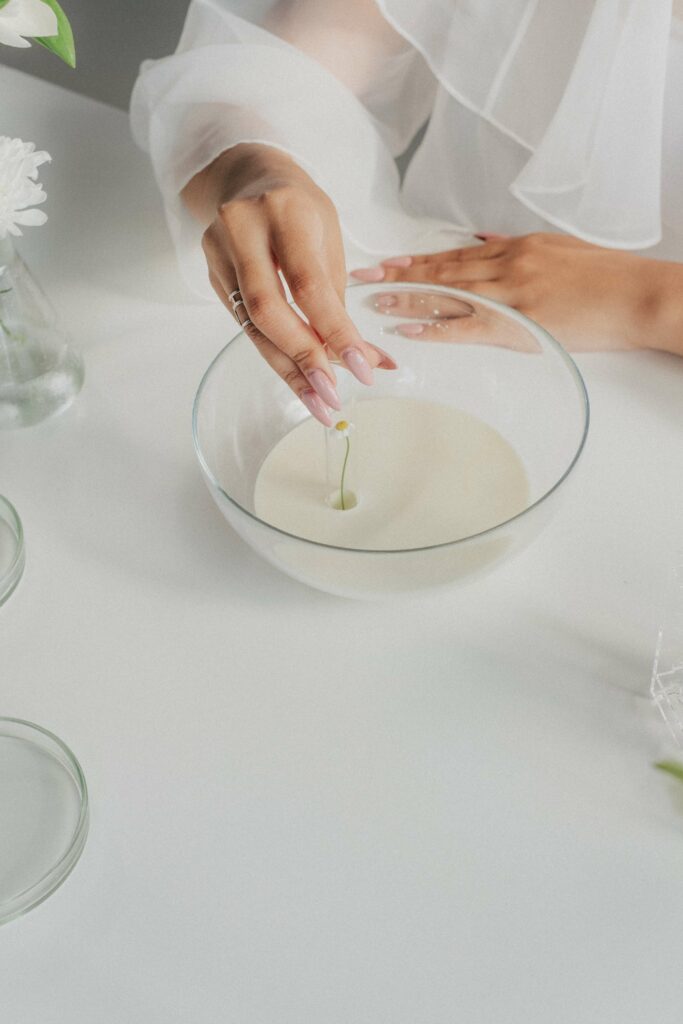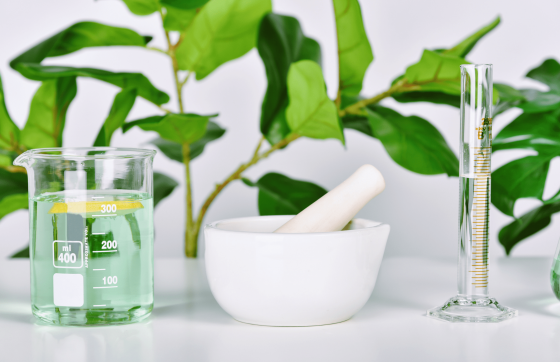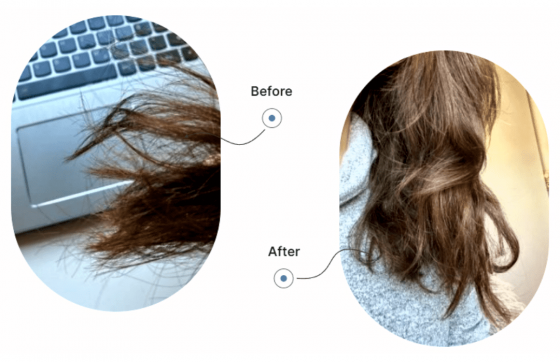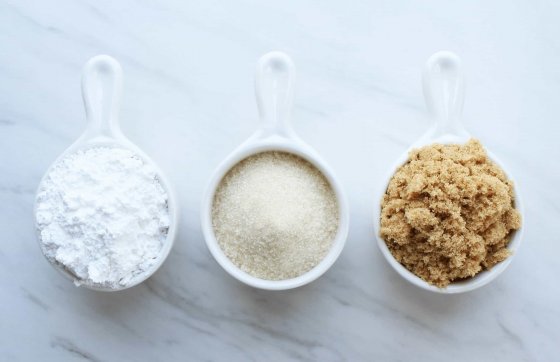
Boost Shine and Reduce Damage? Add These SILICONES to Your Routine!

Silicones are one of the most vilified ingredients among hair care enthusiasts. To bring it up is to summon a long-drawn-out speech over how it risks buildup and how it should be avoided in every and all form. But are silicones in hair products really as bad as they are made out to be?
It’ll surprise you to know that: (a) there are many different silicones around, and (b) they are not all bad. To know the difference, let’s begin with the basics: what exactly are silicones?
Silicone is a synthetic material that is made by combining silicon and oxygen and a host of other materials, usually carbon and hydrogen.
They are widely used in many products across different industries including technology, automotive, kitchenware, healthcare, and of course, hair care products.
You can easily spot silicones on the ingredient list on shampoo bottles as many of them end with -cone or -oxane.

One of the biggest selling points of silicone – and not just in hair-care – is its high heat resistance, as is demonstrated by silicone baking pans and oven mitts. They are also water repellent and have high resistance to UV degradation.
Silicones Aren’t All That Bad
When it comes to silicones and hair care, it’s not black and white. Silicones can be, in fact, good for our tresses! For one, the high heat resistance gives the hair adequate protection from heat and UV damage from styling and sun exposure.
Silicones are also excellent at coating the hair shaft and sealing in good moisture so it prevents hair dryness.
They also lubricate and soften the cuticles so the hair is more manageable and smoother – it also doesn’t hurt that they are great at reflecting light so the hair appears shinier.

This is the part of the article where we add “Here’s the Thing” as a forewarning. So, here’s the thing: there are many different types of silicones, which means there are just as many ways the hair can react to them and as many ways of misusing them.
And this can lead to, among other things, limpness (that usually comes from heavy silicone use) and the dreaded word: build-up.
Understanding Build-Up, Silicone, and How One Leads to the Other
We don’t get warned against build-up for nothing. Build-up is bad – dry, limp, dull hair bad.
Build-up happens when there is an excess of silicone sitting on the hair; it’s when everything good about silicone becomes the hair’s undoing.
Remember when we said silicones are great at sealing the hair shaft, locking in that moisture leaving us with super great hair?

Well some of them just sit on the hair, pile up and seal and seal until nothing gets through them. Not water. Not oils. Not any of the nourishing stuff that your hair loves. That’s build-up. That’s bad – dry, limp, dull hair bad.
But it’s not all bad news from there. Some silicones are actually water-soluble which means their molecules break down simply with water and thus do not need harsh detergents to remove.

While they still pose a risk of build-up, regular washing keeps them off and so the risk remains low at best, medium at the worst.
Non-water-soluble silicones are an entirely different story. These are the ones that really, really stick to the hair and are at the highest risk for build-up. Removing them means having to use drying sulfate shampoos to loosen their grip and undo the build-up.
Sometimes the build-up is so severe and the silicone bonds too strong that it would take multiple piles of washing before all the traces of silicone get removed.
Good Silicone vs Bad Silicone
From hereon we will rank silicones from the worst to the acceptable:

- Nope. These are the types of silicones that are the reason for all the bad rap that silicones are getting. Everything bad that you know about silicones, they are the likeliest of culprits. If you see them on your hair care products, absolutely get rid of them. Stay away from them.
They create such a strong seal that they block off everything else – and they are nearly impossible to remove. They are the ones that take multiple detergent/sulfate shampoo washings to get rid of.
Popular examples: Behenoxy dimethicone, Propyl Dimethicone

- Maybe – but cautiously. Some silicones are okay enough because they bring a good amount of benefits to the hair. They seal in moisture. They make the hair shiny and full of life. They protect against heat-stylers and sun damage. Basically, everything good that you can expect from silicones, you can expect from this midway group.
The downside is, that they either (a) require sulfates to wash out but they wash out easily (marked *), or (b) they are water-soluble but can block out moisture when the hair is washed not frequently enough (marked **). These are the ones to use with caution and few and far in between.
Popular examples: Dimethicone crosspolymer*, Bis-aminopropyl Dimethicone*; Dimethicone**, Silica**

- Okay and acceptable. And lastly, the only silicone types that are completely and absolutely acceptable. They are the ones that have no bad bones in them – they just bring in everything that is good and wonderful without any side effects. You don’t even have to wash them off because they leave on their own.
That’s right, these silicone types evaporate from the hair sometimes as quickly as ten minutes after application. No dryness from moisture loss. No build-up. Nada!
Popular examples: Cyclo-XXX-siloxane ingredients, Hexamethylcyclotrisiloxane
The Final Judgment
In conclusion, we’ve made peace with silicones. In fact, if want to use them for their amazing properties be it boosted shine, heat, or UV protection we have to first understand that they are not entirely bad and they don’t always lead to build-up and bad hair.
Knowing what you know now about silicones, you have the choice to completely avoid them or incorporate them cautiously and smartly.
Dig deeper into whichever comes up on the labels, see if they are okay (A Maybe – but cautiously or an Okay and acceptable rating), on whether they are or are not water-soluble, or if they are completely evil that you must avoid at all costs (see Nope rating). A little planning here and there, and a little research harmed nobody, and will definitely go a long way.

If you want to learn more about silicones, if sulfates are an acceptable detergent to remove, or about the good and bad when it comes to hair care ingredients, make sure to check out our 14-Day Haircare Challenge. You'll learn how to clean up your current haircare routine and build healthy habits to fuel your hair and your health. Click here for more
How do you take care of your hair? What other products you'd like us to review! Please let us know in the comments below!







